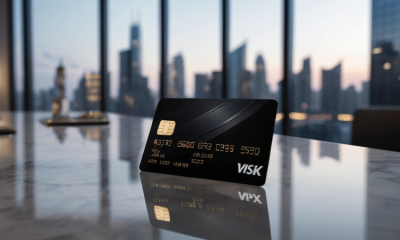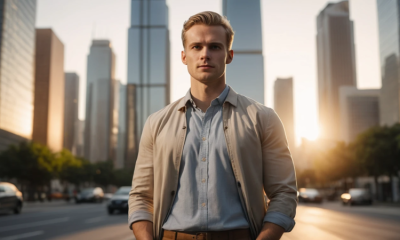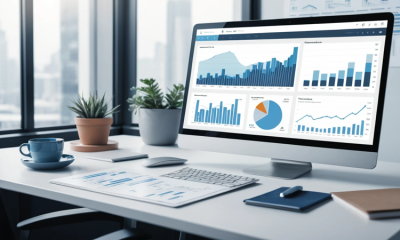Business
Business Casual Shoes Guide – Stylish & Comfortable Picks

Business casual shoes explained. Learn styles, how to choose the right fit, and top outfit ideas for work and beyond.
Business casual shoes blend comfort and polished style, making them perfect for work and everyday wear. They’re less formal than dress shoes but sharper than sneakers. Common options include loafers, oxfords, derbies, Chelsea boots, and clean minimalist sneakers.
Business Casual Shoes: The Ultimate Style Guide For Everyday Comfort & Work Confidence 👞
Have you ever stood in front of your closet wondering, “Are these too fancy… or too casual?” When it comes to business casual style, shoes are the piece that can quietly break your entire look. The good news? You don’t need hundreds of shoes to look sharp and feel confident. You just need the right ones—and to know how to wear them.
Business casual shoes are the sweet spot between relaxed and refined. They offer a polished look without feeling stiff or uncomfortable. Whether you work in an office, hybrid environment, or attend frequent casual meetings, choosing the right shoes can elevate your outfit—and your confidence.
What Are Business Casual Shoes? 🤔
Business casual shoes are footwear that sits between dress shoes and everyday casual sneakers. They’re professional enough for work, but still comfortable and versatile. These shoes are made from quality materials like leather or suede and feature clean, timeless designs.
Common business casual shoe styles include:
- Loafers
- Oxford shoes
- Derby shoes
- Chelsea boots
- Chukka boots
- Minimalist leather sneakers
They’re meant to be stylish, simple, and appropriate for workplace settings without being overly formal.
Why Business Casual Shoes Matter In Your Wardrobe
Your shoes are the first detail many people notice. They tell a story before you even speak. Wearing the right shoes:
- Enhances confidence
- Makes outfits appear more put together
- Works across multiple settings (office → dinner → weekend)
Think of them as the foundation of your personal style.
Key Characteristics Of Business Casual Shoes
To identify or shop wisely, look for:
- Neutral colors like brown, black, tan, navy
- Simple silhouettes without heavy detailing
- Quality materials such as full-grain leather or suede
- Comfort-focused construction including padded insoles and flexible soles
They should look polished—but never flashy.
Loafers: The Most Popular Business Casual Shoe 🥿
Loafers strike the perfect balance between professional and easygoing. They’re slip-on shoes that are stylish, comfortable, and versatile.
Common loafer types:
- Penny Loafers – Clean, classic, timeless
- Bit Loafers – Slightly dressier with metal detail
- Suede Loafers – Smooth and relaxed for warm seasons
If you’re unsure where to start—start with loafers.
Oxfords vs. Derby Shoes: What’s The Difference?
Both look similar—but small details matter.
| Feature | Oxford Shoes | Derby Shoes |
| Lacing Style | Closed lacing | Open lacing |
| Look | Sleek & formal | Slightly relaxed |
| Best For | Dressier work outfits | Business casual outfits |
For business casual wear, Derby shoes are usually more versatile.
Chelsea Boots: The Effortlessly Stylish Option 🥾
Chelsea boots are ankle-high boots with elastic panels on the side. They pair beautifully with chinos, jeans, and slacks.
Why they’re popular:
- Easy to slip on
- Slim and modern silhouette
- Suitable year-round
Leather Chelsea boots are best for the office, while suede works great for casual Fridays.
Chukka Boots: Casual But Polished
Chukka boots are suede or leather ankle boots with minimal lacing. They’re easy to style and incredibly comfortable.
They’re great for:
- Hybrid office environments
- Tech workplaces
- Creative professionals
Pair them with chinos for that “laid-back but still sharp” vibe.
Minimalist Leather Sneakers: The Modern Business Casual Favorite 👟
Yes, sneakers can be business casual—with the right pair.
Choose:
- Simple designs
- Neutral colors (white, tan, black)
- Clean soles (no logos or chunky platform)
They’re ideal for flexible workplaces and Friday outfits.
How To Choose The Right Business Casual Shoe Fit
A great-looking shoe means nothing if it hurts to wear. Make sure:
- Your heel doesn’t lift when walking
- Toes have room to relax (no squeezing!)
- The arch supports your foot shape
Tip: Leather stretches over time—choose a slightly snug fit, not tight.
Best Materials To Look For
| Material | Style Level | Comfort | Durability | Best For |
| Full-Grain Leather | High | Medium | High | Work & Professional Settings |
| Suede | Medium | High | Medium | Casual & Warm Weather |
| Vegan Leather | Medium | Medium | Medium | Ethical Choices |
Full-grain leather lasts the longest and looks better with age.
Colors That Work With Every Outfit 🎨
If you only buy three shoe colors, choose:
- Brown – Versatile and stylish
- Black – Professional and timeless
- Tan – Light, modern, and sharp
Brown is the easiest to pair with most outfits.
Best Outfit Pairings For Men
Try these combos:
- Loafers + Chinos + Button-down shirt
- Chelsea boots + Slim slacks + Pullover sweater
- Derby shoes + Dress pants + Blazer
Keep pants tapered—not baggy—to keep the look crisp.
Best Outfit Pairings For Women
Try these combos:
- Ballet flats + Dress slacks + Knit top
- Leather loafers + Midi skirt + Blouse
- Chelsea boots + Tailored trousers + Blazer
Neutral tones make outfits look more cohesive.
Care & Maintenance Tips 🧼
Taking care of your shoes can double their lifespan.
- Use shoe trees for leather shoes
- Clean and condition leather monthly
- Brush suede often to prevent matting
- Rotate pairs to reduce wear
Your shoes should age gracefully, not fall apart.
How Many Pairs Do You Actually Need?
Here’s a simple wardrobe formula:
| Shoe Type | Why You Need It |
| Loafers | Everyday work outfits |
| Derby or Oxford Shoes | Meetings and presentations |
| Chelsea/Chukka Boots | Seasonal and weekend dressing |
| Minimalist Sneakers | Casual work days |
With just 4 pairs, you’re covered for nearly everything.
Conclusion
Business casual shoes let you look polished without sacrificing comfort. With the right styles—like loafers, derby shoes, boots, and minimalist sneakers—you can build a versatile wardrobe that works for work, evenings out, and everyday wear. Focus on quality, neutral colors, and good fit. Once you do, dressing sharp becomes effortless.
Frequently Asked Questions
- What shoes are best for everyday business casual wear?
Loafers and derby shoes are great everyday business casual options. They’re comfortable and work well with chinos, slacks, or jeans. Look for leather or suede in neutral tones. - Are sneakers okay for business casual work outfits?
Yes—if they’re minimalist leather sneakers. Avoid running or sporty sneakers. Stick to clean designs and neutral colors. - What’s the difference between business casual and formal shoes?
Formal shoes are more structured and polished, like Oxfords. Business casual shoes are more relaxed and versatile, like loafers or boots. - How should business casual shoes fit?
They should fit snugly but not tight. Your heel shouldn’t slip, and your toes should have enough space to move comfortably. - How many business casual shoes should I own?
Most people only need 3–4 pairs: loafers, a dress shoe, a boot, and a clean sneaker.
-

 Business4 weeks ago
Business4 weeks agoAmex Business Platinum – Powerful Rewards Made Easy
-

 Business3 weeks ago
Business3 weeks agoStanding On Business: Powerful Guide To Real Confidence
-

 Technology1 week ago
Technology1 week agoWhy Melbourne Businesses Fall Behind in SEO Without Expert Direction
-

 Business2 weeks ago
Business2 weeks agoCox Business Login – Secure Access Made Easy Today





